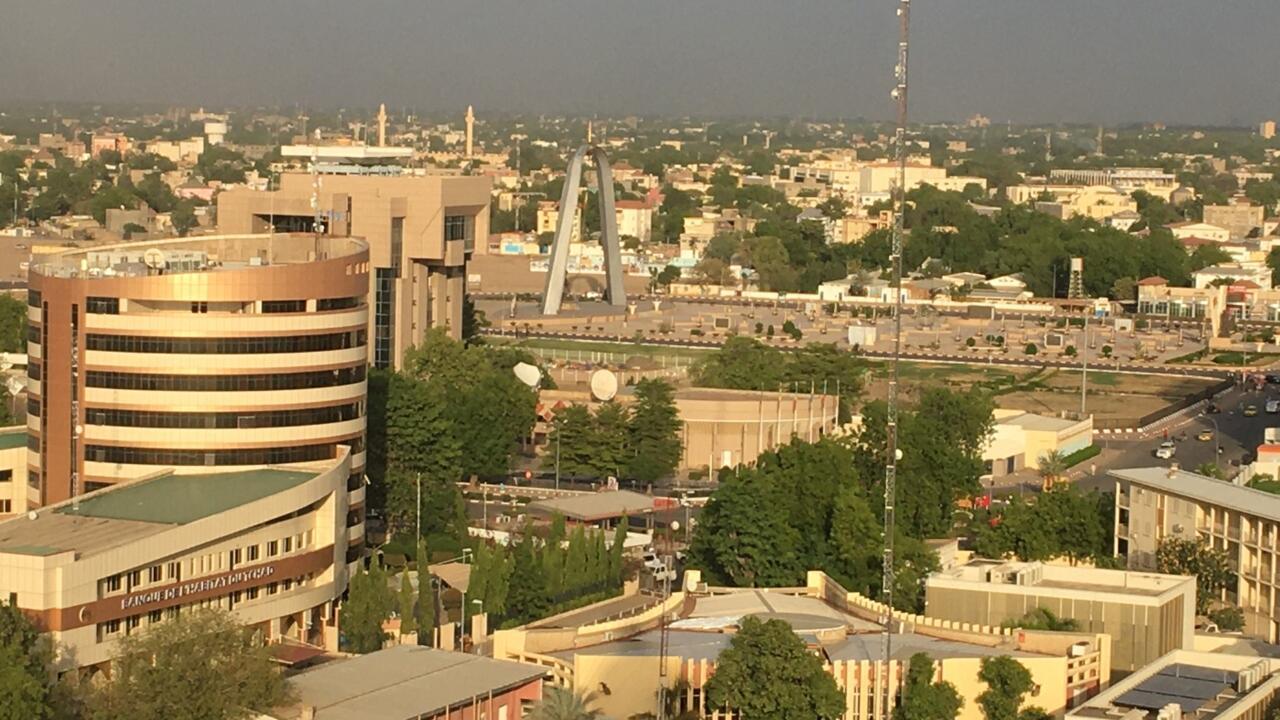The AU Peace and Security Council must position itself on the Chadian case
Aerial view of the Chadian capital, Ndjamena, May 9, 2021 © David Baché / RFI
Text by: RFI Follow
5 mins
In Chad, the day was calm, this Sunday, May 9, after the violence that marked the rallies organized on Saturday in Ndjamena and throughout the country by the Wakit Tama citizen coalition.
The African Union is looking, from Monday, on the question of possible sanctions against the Chadian regime.
Publicity
Read more
With our special envoys to Ndjamena,
David Baché
and
Julien Boileau
Decisive meeting on Chad this Monday morning at the headquarters of the African Union in Addis Ababa.
The Peace and Security Council, which failed to agree on a course of action (sanctions or not) at the end of May after
the death of Idriss Déby Itno
and the seizure of power by the Transitional Military Committee, must look into this morning on the mission report, mission he had sent to this country in order to collect the elements that should guide him in this choice.
The videoconference meeting must officially start at 10 a.m. GMT
After ten days in Chad, the African Union Mission has already submitted its report to the office of the Peace and Security Council which mandated it. According to our sources, he "
recommends
" that the African organization exceptionally derogate from its principles and support the transition in Chad. We must take into account that this country "
is an essential lock against terrorism in Africa and that it is fragile
".
This report also sets conditions for the Transitional Military Council which took power in Chad, just to pass the pill on to its detractors. These include strict respect for a transition of up to 18 months, the organization of an inclusive national dialogue that would lead to a sharing of power between military and civilians, as was done in Sudan.
But nothing is decided in advance.
The African Union Peace and Security Council sent its mission to Chad at the end of April because it could not agree on a common position.
Some countries, especially in southern Africa, are fiercely opposed to there being a
Chadian
"
exception
", according to our sources.
They continue to advocate a suspension of Chad from the African Union because of the seizure of power in what they call a "
military coup
".
What will the AU say about Saturday?
During their stay in Chad, members of the African Union delegation met the new authorities, starting with the head of the Transitional Military Council, Mahamat Idriss Déby, son of the former president, the opposition parties, civil society organizations, diplomats stationed in Ndjamena as well as representatives of religious organizations.
Objective: to ensure the smooth running of the current transition.
Off the microphone, a minister of the new transitional government, close to the former regime, does not hide the little importance he makes of a possible suspension of Chad from the governing bodies of the African Union, which does not have the right to power to take economic sanctions.
A suspension would, however, constitute a bad signal sent to the country's other international partners, but this minister also knows that he can count on Chad's eternal and important means of pressure: its military presence in the Sahel and in the Lake Chad basin, a key element of the fight against jihadist groups in these areas.
In addition,
the demonstration
, scheduled for Saturday, May 8 in the capital to protest against the transitional authorities set up after the death of Idriss Déby, was prevented by the police. The citizens' coalition deplores a dozen wounded including three serious and fifty arrests throughout the territory. No figures from the authorities, but the Ndjamena prosecutor confirms about twenty arrests in the capital and a protester injured by live gunshot.
Also, what will the African Union remember from Saturday?
The gesture of the Transitional government which had authorized the demonstration, under certain conditions (conditions rejected by the Wakit Tama citizen coordination which does not recognize the new authorities)?
Or the violent repression of gatherings, of smaller gatherings than during the previous march, a sign of running out of steam or a logical consequence of the police repression?
Read also: Chad: the government reconnects with international financial institutions
Newsletter
Receive all international news directly in your mailbox
I subscribe
Follow all the international news by downloading the RFI application
google-play-badge_FR
Chad
African Union

